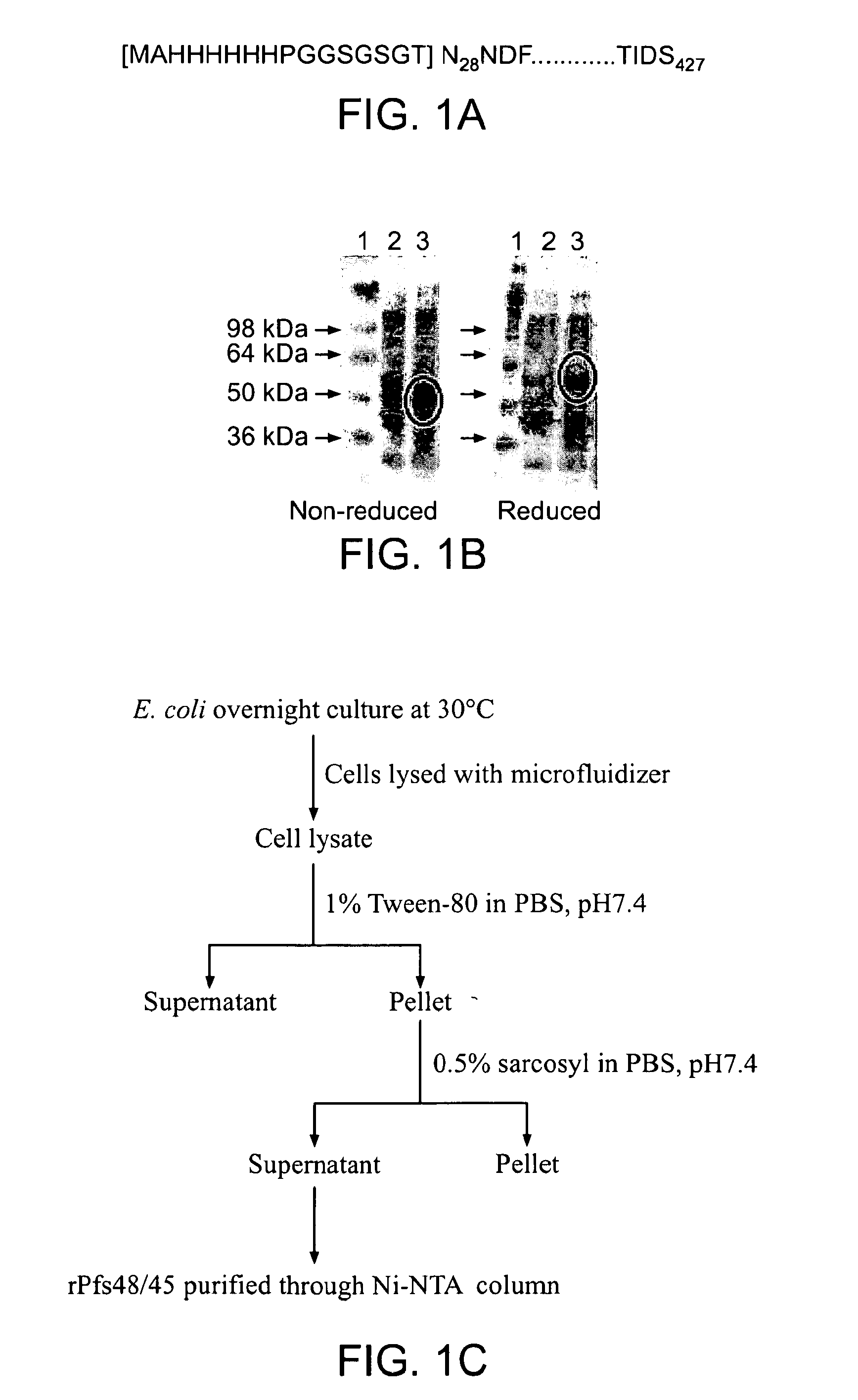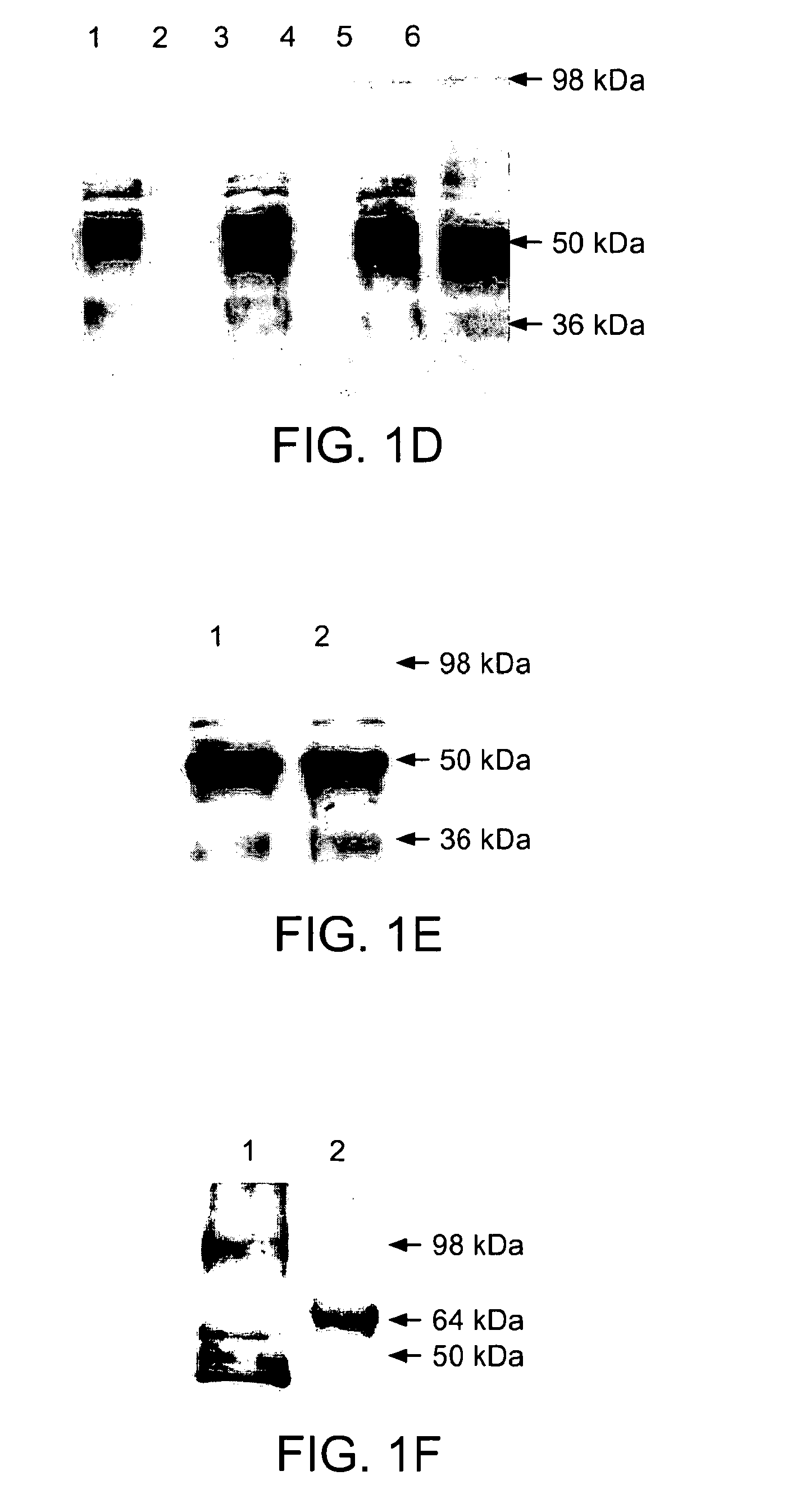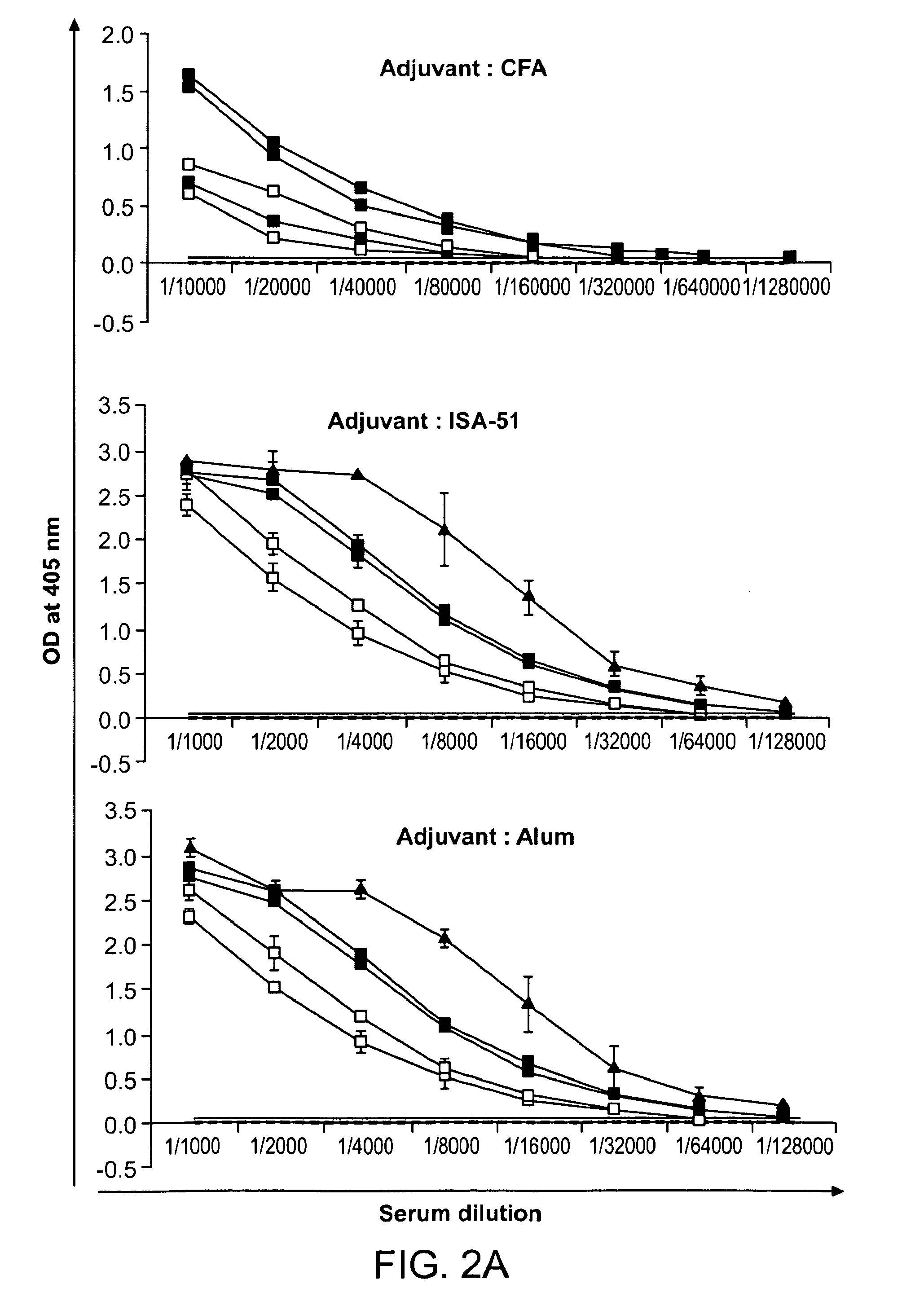Malaria vaccine
a malaria vaccine and vaccine technology, applied in the field of malaria vaccine, can solve the problems of not being able to evaluate any pre-fertilization antigen as vaccines, and the difficulty of safe, effective and affordable malaria vaccines, and achieve the effect of reducing the transmission of plasmodium falciparum
- Summary
- Abstract
- Description
- Claims
- Application Information
AI Technical Summary
Benefits of technology
Problems solved by technology
Method used
Image
Examples
example 1
Expression and Purification of Correctly Folded Pfs48 / 45
[0149]Generally speaking it is often difficult to express P. falciparum proteins in a heterologous expression system and such problems are largely due to high A / T content giving rise to changes in codon usage frequencies. It is now increasingly being realized that synonymous codon substitutions are not always silent and changes in the frequency of codon usage affects protein structure and function. Differences in synonymous codon usage between expression and natural hosts greatly affect expression and stability of proteins. These codon differences have even greater consequences if they occur infrequently and within the domains that encode polypeptide regions of higher ordered structure. The presence of infrequently used codons is believed to cause ribosome pausing leading to incorrect folding and premature termination of protein during translation. An algorithm that takes into account known relationships between codon usage fre...
example 2
Evaluation of Functional Immunogenicity of CH-rPfs48 / 45 in Mice in Different Adjuvant Formulations
[0153]The immunogenicity of CH-rPfs48 / 45 was assessed in three different adjuvant formulations: CFA, water-in-oil emulsion using Montanide ISA-51 and Aluminium hydroxide. FIG. 2a shows the IgG titer 2 weeks after the 2nd boost in CFA group and 2 weeks after the 3rd boost in Alum and Montanide ISA-51 groups. This formulation resulted in the highest antibody titer ranging from 3×105 to >1×106 [FIG. 2a, top panel]. However, all mice immunized with CH-rPfs48 / 45 in the other two adjuvant formulations also showed high antibody titer, the range being ˜70,000 to more than 100,000 in both Montanide ISA-51 and Alum formulations [FIG. 2a, middle and bottom panels]. Sera for IgG isotype distribution was also tested and all four subtypes (IgG1, IgG2a, IgG2b, IgG3) were more or less equally represented in sera from mice immunized with CFA formulation, [FIG. 2b, top panel]. On the other hand, IgG1 and...
example 3
Evaluation of Functional Immunogenicity of CH-rPfs48 / 45 in Non Human Primates (Olive Baboons)
[0159]Backed by strong functional immunogenicity of CH-rPfs48 / 45 in three different adjuvant formulations in mice, the CH-rPfs48 / 45 vaccine was next evaluated in nonhuman primates (Papio anubis, Olive baboons). The vaccine trial in baboons was approved by the institutional and scientific review committee of the Institute of Primate Research with a protocol #19 / 10 / 2007.
[0160]A group of 5 baboons (ranging 7.6 to 12.2 kg in body weight) were immunized with 50 μg of CH-rPfs48 / 45 in Montanide ISA-51, water-in-oil emulsion. Our choice of the adjuvant for these studies was dictated, in part, by the fact that the adjuvant has already been in use as an investigational adjuvant in clinical trials in humans [25] and that the CH-rPfs48 / 45 vaccine formulated in Montanide ISA-51 was strongly effective in murine immunization studies (above). The vaccine, dose, route and schedules selected were based on exp...
PUM
| Property | Measurement | Unit |
|---|---|---|
| molecular weight | aaaaa | aaaaa |
| body weight | aaaaa | aaaaa |
| body weight | aaaaa | aaaaa |
Abstract
Description
Claims
Application Information
 Login to View More
Login to View More - R&D
- Intellectual Property
- Life Sciences
- Materials
- Tech Scout
- Unparalleled Data Quality
- Higher Quality Content
- 60% Fewer Hallucinations
Browse by: Latest US Patents, China's latest patents, Technical Efficacy Thesaurus, Application Domain, Technology Topic, Popular Technical Reports.
© 2025 PatSnap. All rights reserved.Legal|Privacy policy|Modern Slavery Act Transparency Statement|Sitemap|About US| Contact US: help@patsnap.com



